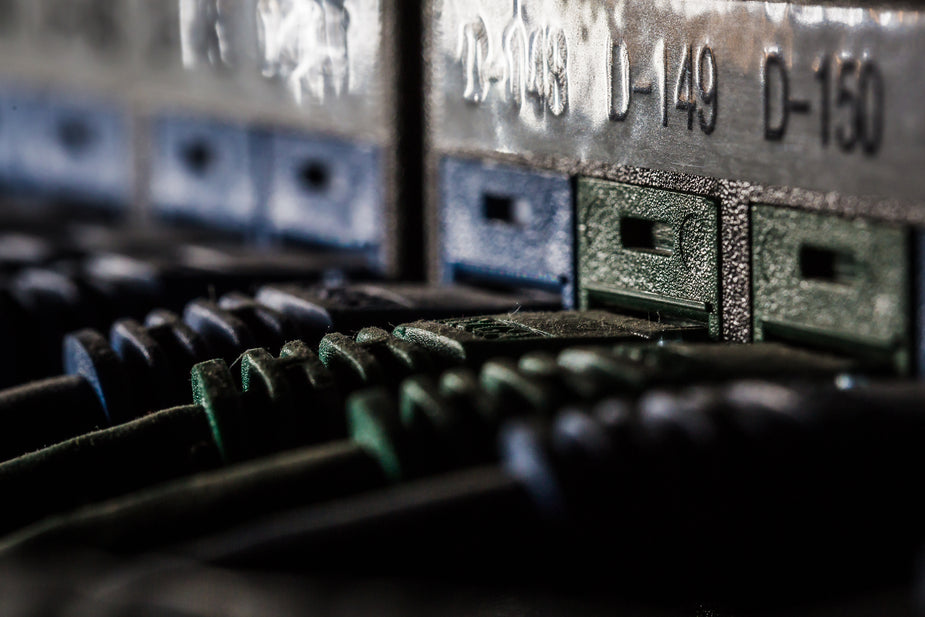February 10th, 2024 – Should I Be Worried About AI?

This question has been popping up all over my socials, in my research, and in my community specifically in the last week. As a court reporter/scopist/proofreader/transcriptionist should I be worried about AI’s ability to do my job? Will new AI programs such as ChatGPT be able to take over my workload and replace me? There are already industries that have seen a significant increase in AI workers and a massive reduction in the human labor force.
As harrowing as this may be, I’m personally not worried. I won’t be so bold as to say, “Definitely never!” because I don’t know the answer for certain. Our industry, however, is one I don’t see being the first to lose human workers. There are a few things I know which make me feel much less worried about AI’s ability to take my job, or yours.

AI Is Limited In Its Abilities
As much as technology advances and evolves, some problems are more difficult to solve than others. Fortunately for us, those problems can be avoided with the presence of a human. Many people are saying that AI won’t be able to read back reports, discern between accents, and provide clarification to the record. I disagree with this idea. I think AI has evolved so much and will continue to evolve that even if they can’t do these things now, it is only a matter of time. However, I don’t think that these are things we should be worrying about. The things AI cannot do will outweigh the things it can.

Extraneous Noise
Microphones and speakers are very sensitive, and that is a point in their favor to some degree. However, things like background noise, coughing, construction noise outside, traffic sounds, scuffling, etc, will all be picked up on the microphone. This could also be recorded in place of the speakers’ words if they are speaking quietly or far from the microphone. A court reporter will be able to discern between these noises, ask a speaker to repeat themselves or speak closer to a microphone. AI could very well miss the speaker’s words entirely due to the background noise. Then, AI won’t be able to recognize it has made a mistake and ask for the court to correct it. That will just be a missing piece of the record.

Multiple Speakers
Similar to the aforementioned point, AI will not be able to discern between multiple speakers. Maybe they can tell different voices to differentiate accounts, but what if multiple people are speaking over each other? The record will only reflect the loudest voice. If the court is aware of the shortcomings of AI, at best it will cost time and effort as the court will then have to ask everyone to repeat themselves and slow down. That’s if they even recognize that there would be an issue with the AI.
If (as is more likely) the issue is not addressed because the court assumes AI is capable of recording the voices with no issue, then the record is just again, missing that piece of the transcript. A court reporter would be able to tell the speakers to slow down, speak again, don’t talk over each other, have some respect in the courtroom, etc. AI won’t be able to do that.

Technological Malfunctions
A tale as old as electricity- technology is great… when it works. Malfunctions, glitches, system errors, and internet instability. These are all issues that we deal with every single day. Even as professionals using technology in this space, we still must deal with the occasional (or frequent) interruption by our malfunctioning tech. The current benefit is that a human can spot the error, fix it, and move forward without missing important parts of a transcript. This is an issue that has already happened in places where they attempted to use technology instead of a court reporter. During a homicide trial, the transcriber malfunctioned resulting in 30 minutes of lost testimony. Can you imagine the kind of information that was lost there? The potential of that information is too crucial to leave to the mercy of a machine that could (and did) malfunction.

Body Language
Specifically with audio-only transcribers, any body language by the speakers or witnesses is lost. Indicating to a person or thing, shrugs, head nods, or anything of that nature would be lost with audio-only transcription. This doesn’t even begin to touch on things like prosody that need to be interpreted when a witness is speaking. The way a speaker behaves in the courtroom needs to be indicated in the testimony. A court reporter can record that, but an audio transcriber cannot.
While these technological issues exist, someone will always be needed. Humans will need to check and recheck the work, especially against an audio recording. AI can’t be trusted to get it right 100% of the time. So, even if they try to replace the human professionals in these environments, they will always need to rely on humans. Humans will ensure the quality of an AI’s product.
In Conclusion
Are there things we need to be worried about? Sure. Can we trust businesses to prioritize product quality over cost-saving? No. Can we trust the government not to invest in AI that could potentially eliminate jobs rather than create them? No.
For now, I believe that what AI cannot do are all things a human can. The amount of money it would cost to develop AI that could do these things, and maintain that technology over time, is much greater than the average salary of a court reporter, transcriptionist, or scopist. After reading so many reports* on the priorities and goals of AI in the coming years, I believe improving this specific technology won’t be the priority. And if it is, it shouldn’t be. We have much bigger issues to worry about as a society than whether AI can recognize voices.
The consensus is that the biggest threat to our industry is the lack of us. Court reporters specifically. These cases where courts used technology instead of a reporter were not because they believed it was more cost-effective, or that the technology would do a better job. Technology was used in place of a reporter because there were no reporters available. It’s a vicious and dangerous cycle. People don’t want to join a field they believe is dying, but the field is dying because people aren’t joining it.
—-
I hope you enjoyed this week’s post! If you did, please leave a comment down below and check back for a new post on the Next Step Scopist blog!
*If you want to know which reports I’m referring to, here are the links:
White House Report
McKinsey Global Survey
American Progress
—-
Last Post: The Differences Between Scopistry, Proofreading, and Transcription
Next Post: People And Blogs You Should Be Following In Scopistry, Proofreading, And Transcription

Leave a Reply